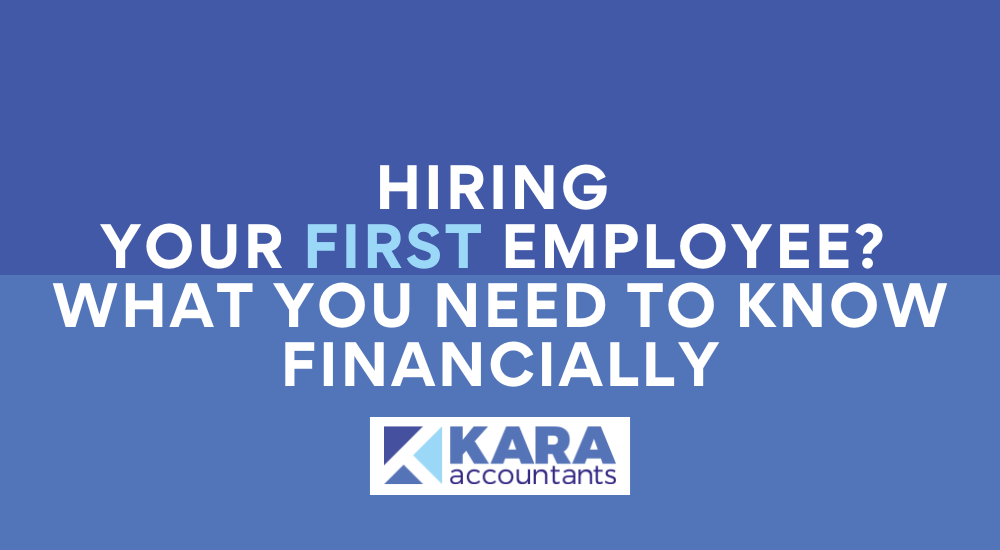
Hiring Your First Employee? What You Need to Know Financially
So, you’re ready to grow your business and bring in your first employee—exciting times! Hiring someone can be a game-changer for small businesses, helping you take on more work, offer better service, and free up your time to focus on growth. But before you post that job ad, there are financial responsibilities you’ll need to prepare for.
Here’s a straightforward guide to what you need to know when hiring your first employee…
1. Understand Employment Costs Beyond Salary
Your new employee’s salary is just the start. You’ll also need to factor in:
- Employer’s National Insurance contributions (currently 13.8% on earnings above the secondary threshold)
- Pension contributions (you’re required to auto-enrol eligible employees and contribute at least 3%)
- Holiday pay (at least 5.6 weeks per year, including bank holidays)
- Sick pay, maternity/paternity leave, and other statutory entitlements
📌 Tip: Use a payroll calculator to estimate total employment costs before making an offer.
2. Register as an Employer with HMRC
You must register with HMRC before the first payday. This enables you to:
- Run payroll
- Report employee earnings and deductions (via RTI—Real Time Information)
- Pay tax and National Insurance
Registration is free and usually takes up to 5 working days. You can do it online on the HMRC website.
3. Set Up Payroll
You’ll need a payroll system that can:
- Calculate PAYE (Pay As You Earn) tax and National Insurance
- Generate payslips
- Send monthly reports to HMRC
- Handle pension contributions and auto-enrolment
Many small businesses opt for cloud-based payroll software like Xero, QuickBooks, FreeAgent, or Payroo.
4. Know the Minimum Wage Rules
The UK has different minimum wage rates depending on age and apprenticeship status. From April 2025, the rates are:
- £11.44 for workers aged 21 and over
- Lower rates apply for younger workers and apprentices
Check gov.uk for the latest updates to ensure you’re compliant.
5. Auto-Enrol Your Employee in a Pension Scheme
If your employee is:
- Aged between 22 and State Pension age
- Earning over £10,000 a year
- Working in the UK
…you must enrol them in a workplace pension and make contributions. Providers like Nest, The People’s Pension or Smart Pension cater well to small businesses.
6. Take Out Employers’ Liability Insurance
This is a legal requirement and protects you if your employee becomes ill or injured as a result of working for you. You can be fined £2,500 for every day you’re not covered, so don’t skip this step.
7. Prepare an Employment Contract
A written statement of employment particulars is legally required from day one. It should include:
- Job title and description
- Hours and pay
- Holiday and sick leave policies
- Notice period
- Pension details
Even if you’re hiring a friend or family member, a clear, written contract protects both of you.
8. Stay on Top of Your Reporting and Payments
You’ll need to:
- Submit payroll reports (FPS and EPS) to HMRC every month
- Pay PAYE and NIC to HMRC by the 22nd of the following month (or 19th if by post)
- Keep records for at least 3 years
Hiring your first employee is a big milestone—financially and operationally. Yes, it’s a commitment, but it can also fuel serious growth if planned properly.
If you’re unsure where to start, speaking with an accountant or payroll provider can help you avoid costly mistakes and keep your books in order.

This Post Has 0 Comments